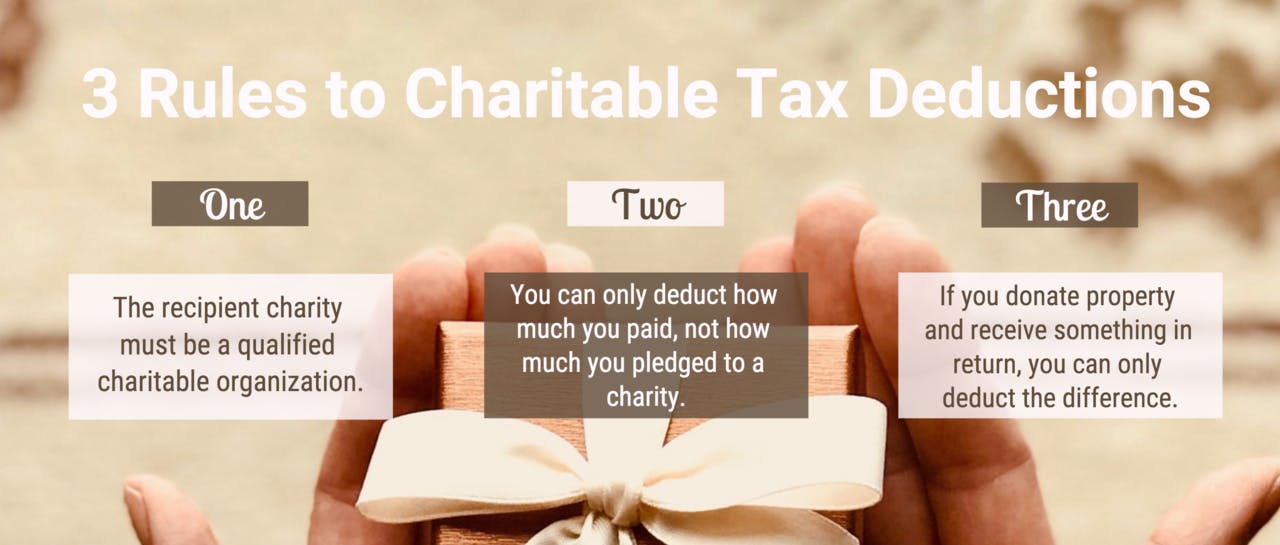If reducing your taxable estate is an important estate planning goal, making lifetime charitable donations can help achieve that goal and benefit your favorite organizations. In addition, by making donations during your lifetime, rather than at death, you can claim income tax deductions. But some of your charitable deductions could be denied if you don’t follow IRS rules.

3 Things To Be Aware Of:
First, the recipient charity must be a qualified charitable organization: It must have a tax-exempt status. The IRS has developed a tool on its website — the Exempt Organizations Select Check — that allows users to search for a specific tax-exempt organization, check its federal tax status and learn about tax forms the charity may file that are up for public review.
Second, the timing of pledging vs. payment of your charitable contributions can affect your deduction. Why? For most taxpayers, contributions are deductible only in the tax year they’re made. So if you pledged $5,000 in October of 2017, but paid only $1,500 of your pledge to the charity by December 31, 2017, you’re allowed to deduct only the $1,500 amount on your 2017 tax return.
Third, if you donate property and receive something in return, it’s important to know the fair market value of each item. For example, if you donate a flat screen TV to your child’s school and receive two tickets to a sporting event in return for your donation, you must first determine the value of your donation. Then you may deduct only the amount exceeding the fair market value of the two tickets.

Substantiate your donations
Be aware that substantiation rules also apply when giving cash or property to charity, and they vary based on the type and amount of the donation. For example, cash gifts of $250 or more require a “contemporaneous” written acknowledgment from the charity that includes information such as the gift’s amount and date and the estimated value of any goods or services received. For smaller gifts, a canceled check or credit card receipt may be sufficient.
If you’ve made substantial charitable donations, their deductibility depends on compliance with IRS rules, which go far beyond what we’ve discussed here. When in doubt, contact us to be sure you’ve dotted all the i’s and crossed all the t’s.
Read more estate planning tips here: Choosing your Child’s Guardian


